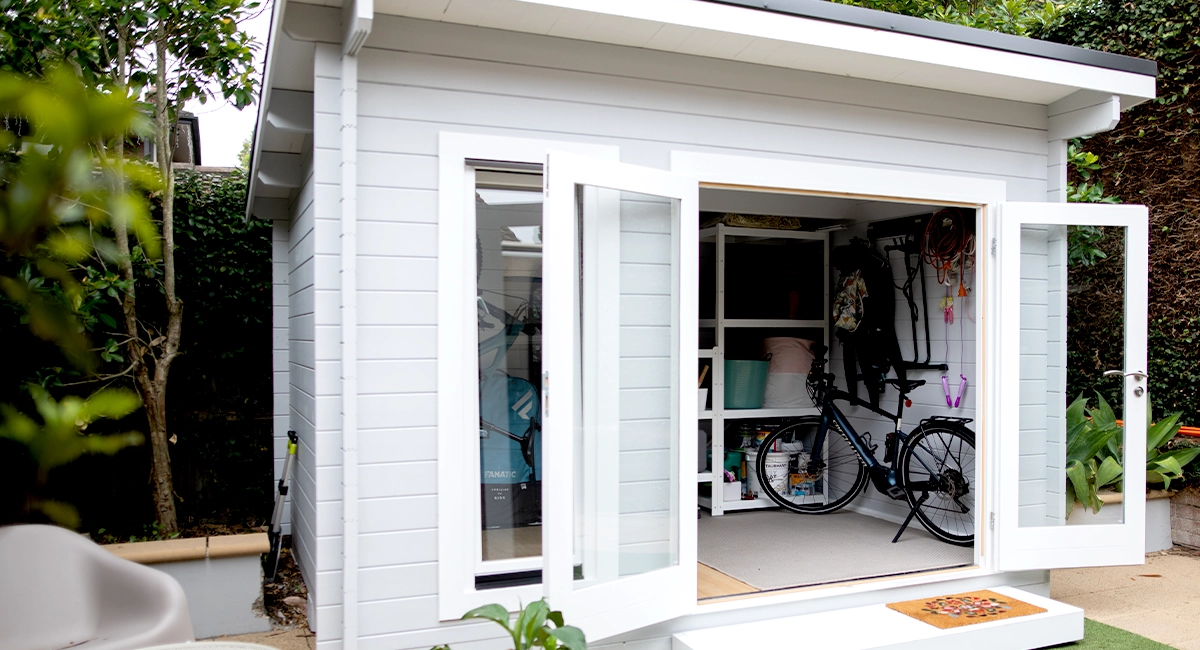
When you live in the Northeast, fall can be quite the perplexing time of year. You could go from early fall in September that is still sultry to snow in October that turns Halloween from walks in the parks to shivers with the children. Remember, you have to think about garden hoses to outdoor furniture to tools and equipment that could still be in play to use before the cold sets in. Let’s not forget to not bury snow shovels, ice melt, and more that could be used in a sudden cold emergency too. There’s so much to concern yourself with across three seasons. We are here to help.
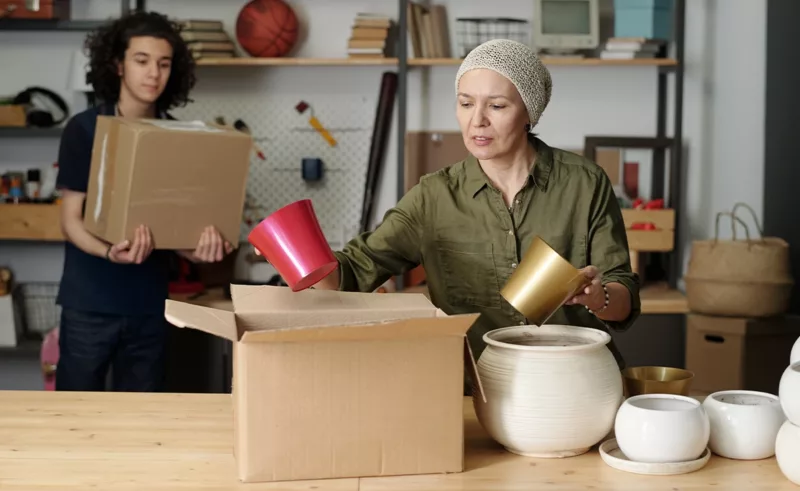
Closing Down the Summer Months
Because of those previously mentioned temperatures, there are plenty of decisions to make. On one hand, you’re going to want to get the most out of your summer and the warm weather as possible, but on the other hand, at some point you will have to call it a day. That’s somewhere probably around September or October. Keep that in mind when putting away big storage items such as tables, chairs, grills, fire pits, and gazebos. It’s really easy to say you want to keep using them, but you’ll want to put them in the back of your shed rather than seeing them as the first thing you see when you open the door come November. Waiting until the end could leave you with a whole bunch of double work, taking things out of your storage units again and restacking. Something you surely don’t want on your agenda. As your parents would always say: work smarter, not harder.
Organization Part 1: Summer Storage Options
Outside organization: You might want to consider an outdoor storage box like our Keter Sumatra Outdoor Storage Rattan Deck Box. It fills about 135 gallons of extra-large storage capacity – ideal for cushions, outdoor toys, garden and pool supplies. Its resin construction is weather-resistant, durable and strong. It’s not going to warp, dent, or rust.
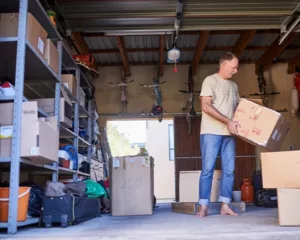 Inside organization: Talk about having your pick of the litter. Ocean State Job Lot has storage container options ranging from 10-gallon to 55-gallon in order to pack up anything you need to store.
Inside organization: Talk about having your pick of the litter. Ocean State Job Lot has storage container options ranging from 10-gallon to 55-gallon in order to pack up anything you need to store.
Making things last: Outdoor items, such as patio furniture, garden tools, and sports equipment, are valuable, and higher-priced assets that require care and attention to ensure they last for years to come. Investing time in proper storage during the winter will help extend their lifespan. Decide if they will be covered or moved inside a shed. If it is that shed that you are choosing, make sure you don’t just shove them in there. Those nicks and breaks could become costly coming out of the shed next spring, and who needs that surprise? Costly time and savings should be considered.
Safety and liability: If you’re going to store things outdoors consider this: safety. Storing outdoor items safely prevents potential hazards, such as slippery paths caused by frozen hoses or accidental injuries from uncovered sharp tools. It also reduces the risk of legal liabilities in case of damage caused by your belongings to others’ property during the winter.
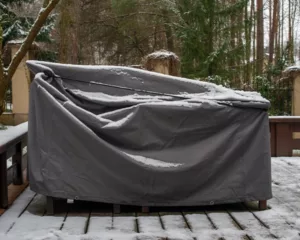 Garden furniture: For wooden furniture, apply a coat of protective sealant or oil to prevent moisture absorption and cracking. Cover furniture with water-resistant, breathable covers to shield them from snow and dust.
Garden furniture: For wooden furniture, apply a coat of protective sealant or oil to prevent moisture absorption and cracking. Cover furniture with water-resistant, breathable covers to shield them from snow and dust.
Garden tools and equipment: Clean and sharpen garden tools, such as shovels, rakes, and pruners, before storing them. Apply a light coat of oil to metal parts to prevent rust. Store tools in a dry, well-ventilated area, hanging them or using racks to save space and maintain their condition.
Hoses and watering cans: Drain hoses and watering cans completely to avoid freezing and cracking. Coil hoses neatly and store them in a shed or garage.
Potted plants: If you have potted plants that can’t withstand winter conditions, consider bringing them indoors. Alternatively, group pots together in a sheltered area and wrap them with burlap or other insulating materials.
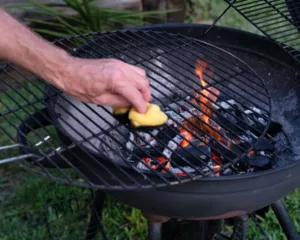 Grills and barbecues: Thoroughly clean grills and barbecues, removing all grease and food residue. Leaving them for next spring might be a choice that proves very regrettable at the least with a day of soaking or replacement of them at the worst. Cover them with weather-resistant grill covers to protect them from winter elements.
Grills and barbecues: Thoroughly clean grills and barbecues, removing all grease and food residue. Leaving them for next spring might be a choice that proves very regrettable at the least with a day of soaking or replacement of them at the worst. Cover them with weather-resistant grill covers to protect them from winter elements.
Sports and recreation equipment: Clean and dry sports equipment, such as bicycles, golf clubs, and tennis rackets. Store them indoors or in a well-insulated, temperature-regulated space to prevent damage caused by extreme cold.
Clean and prepare items: Take a few extra minutes to clean before putting things away. But think about it. What you’re putting away is going to sit there in the cold Northeast winter for the next three months outdoors. If it’s dirty, cracked, or not clean, there’s going to be dirt, debris, and moisture left of them when you take it out. That could mean costly corrosion, rust, or mold. Ocean State Job Lot has plenty of appropriate cleaning agents. Make sure your items are completely dry before storing them.
Organization Part 2: A Winter Storage Plan
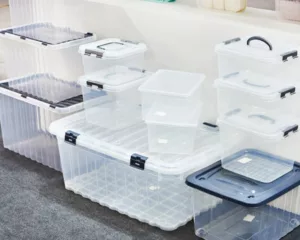 Easy retrieval: A well-organized storage plan ensures that items are stored in a systematic manner, making it easier to locate and retrieve them when needed in the spring. Labeling containers and using clear storage bins can help facilitate this process. You’ll want to be able to have access to these items during November and December until you get to the heart of winter so that those fall items can still be used, if necessary.
Easy retrieval: A well-organized storage plan ensures that items are stored in a systematic manner, making it easier to locate and retrieve them when needed in the spring. Labeling containers and using clear storage bins can help facilitate this process. You’ll want to be able to have access to these items during November and December until you get to the heart of winter so that those fall items can still be used, if necessary.
Prevent clutter: Storing items neatly and efficiently prevents clutter in your yard, garage, or storage space. This ensures that you have ample room to move around and access other belongings without tripping over scattered items.
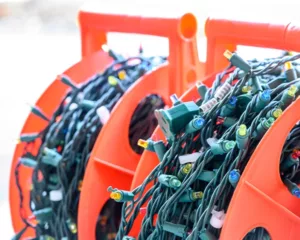 Store seasonal decorations: Christmas lights, inflatable decorations, and other seasonal items should also be stored properly. Label and organize them in clearly marked boxes to make it easier to retrieve them next year.
Store seasonal decorations: Christmas lights, inflatable decorations, and other seasonal items should also be stored properly. Label and organize them in clearly marked boxes to make it easier to retrieve them next year.
Enhanced durability: A proper winter storage routine extends the lifespan of your outdoor items, reducing the need for frequent replacements and saving you money in the long run.
Winterize irrigation systems: If you have an automated irrigation system, ensure you winterize it properly. Drain all water from the system to prevent freezing and potential damage to pipes and valves.
Peace of mind: Knowing that your outdoor belongings are safely stored and protected from winter elements brings peace of mind. You won’t have to worry about potential damage or deterioration during the cold season.
Useful Accessories
Label maker: If you’re using shelving or inside storage containers, you might entertain getting one put on your containers avoiding the guessing game of what’s in anything.
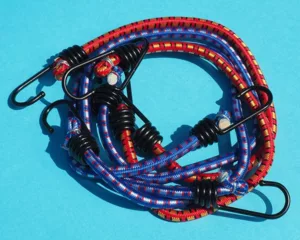 Bungee cords: Have plenty of these on hand, especially when wrapping garden hoses for the cold months. One on the top and one on the bottom will keep them sturdy and durable for their next use.
Bungee cords: Have plenty of these on hand, especially when wrapping garden hoses for the cold months. One on the top and one on the bottom will keep them sturdy and durable for their next use.
Shelving: If your shed has shelving, it’s a bonus. Another thought if it does or doesn’t is hooks that slide right into the walls of the shed. Make sure that those hooks are sturdy, too! The last thing you really want is things falling on top of each other and you have to clean up the mess and then replace items.
Zip ties: Like bungee cords, zip ties are ideal because they keep things together so that you don’t have to wrap it amongst itself.
By following practical tips, cleaning and preparing items properly, and organizing belongings in a systematic manner, you can enjoy the benefits of a well-maintained outdoor space and the assurance that your belongings will be ready for use when the warm weather returns. So, embrace the changes and all the work that comes with it so that. It’s a small effort that brings bigtime rewards down the road.
